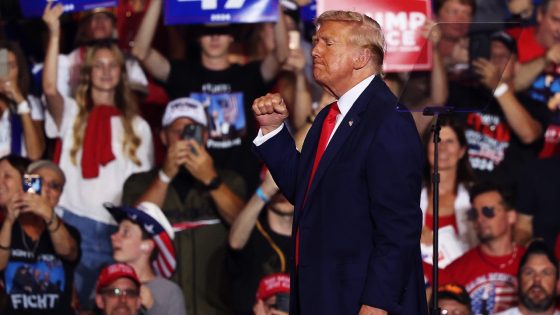The concept of amateurism in sports took root in the late 1800s, mostly among the wealthy elite of England who spent their weekends competing in various games.
At the time, the working man had limited access to such pursuits. They toiled six days a week in factories or farms owned by the sporting upper class. For them, there was no time for games, let alone the time or energy to master them.
Somewhere along the way, in an effort to influence the outcome of a rugby match or dressage competition, some rich guy decided to pay one of his workers to train for competition rather than perform manual labor. He stacked the team. “Ringers” they were often called.
To combat this, the other rich men came up with the idea that not only should paying athletes to participate be prohibited, but that such behavior was morally and ethically bankrupt.
You play for the love of the game, not food and housing, they decreed. This was, of course, easy to say when you already have food and housing.
Regardless, the idea took root. Amateurism was good! It was deemed a way to maintain a fair and level playing field even if it was really about maintaining the unfair advantage of the moneyed.
“The genesis of amateurism was built around elitism and exclusion … allowing the wealthy to regulate working and lower-class people behind the screen of rhetorical morality,” University of New Hampshire Robert J. Romano wrote in a 2002 paper on the subject.
In short, amateurism is a terrible, unfair, ethically bankrupt idea created by terrible, unfair, ethically bankrupt people who sought to rig everything, even simple games, in their favor.
Regardless, the International Olympic Committee and later, in America, the NCAA, seized on the idea and baked it into the ethos of their organizations. Playing for the love of sport was somehow pure. Being paid somehow tainted everything and deserved ridicule and punishment.
Both organizations sold the public on this belief. Then they sold a lot of tickets and television advertising.
If the Victorian hierarchy did it to save their egos from losing to the working man, the IOC and NCAA did it to make billions for the bosses.
On Wednesday, the Heisman Trust, which awards the most famous trophy in college football but isn’t technically part of the NCAA, decided to reinstate USC running back Reggie Bush as the 2005 recipient of the trophy.
The overdue decision came nearly 14 years after it stripped Bush of his Heisman for “receiving” what the NCAA had determined was “impermissible extra benefits” while playing for the Trojans. The NCAA had retroactively deemed Bush ineligible for competition and the Heisman Trust went right along with it.
It was a prime example of not just the power of the NCAA, but how the power of the misguided idea of amateurism influenced public opinions and actions.
Bush, in 21st century America, needed to be both brandished as a cheat and banished from history for violating some rules based on the ugly classism of 19th century England.
Scorn and humiliation was the ultimate punishment. Perhaps it would keep the next athlete in line.
Maybe this is truly the end for this onerous idea. Maybe this is the true death of amateurism, a wrong that was deemed right because the wrong people controlled what was considered right and wrong.
The IOC gave up on amateurism in the late 1980s, no longer hanging onto the absurd lie that the public preferred to watch athletes who weren’t being paid. Decades of the USA Basketball “Dream Team,” Usain Bolt, Michael Phelps, Simone Biles and other professionals winning gold proved that to be demonstrably false.
Yet it wasn’t until these last couple of years that the NCAA’s hold on controlling payments to its players began to fray. As late as 2019, the NCAA still argued in front of the United States Supreme Court that fans wouldn’t watch players who made money. Not surprisingly, the NCAA lost that case 9-zip.
That opened the door for players to earn off their name, image and likeness, a pay-for-play workaround. Pretty much everyone in college sports believes the days of direct employment are a matter of when, not if.
Amateurism is over. Even the self-important Heisman Trust knows it.
“We considered the enormous changes in college athletics over the last several years in deciding that now is the right time to reinstate the trophy for Reggie,” Heisman Trust president Michael Comerford said in a statement.
“Recognizing that the compensation of student-athletes is an accepted practice and appears here to stay, these fundamental changes in college athletics led the Trust to decide that now is the right time to return the trophy to Bush,” Comerford said.
There is an argument, of course, that the rules at the time, no matter how dumb, were still the rules. Bush no doubt violated them. It’s a fair counterpoint in specific cases. Whether the NCAA begins to reinstate athletes and teams is the next symbolic step and will hinge on that.
Regardless, in the broad sense, this is a win for everyone except the coaches and administrators doling out — often to themselves — the money.
Amateurism was never an ideal ideal, it was rooted in everything wrong about human nature – the self-interest to control others. The public has finally realized it.
After all, is there anyone left who thinks Caitlin Clark deserves to be punished for appearing in commercials during her NCAA tournament games?
That amateurism lasted this long is somewhat astounding.
That Reggie Bush may have pounded home one of the final coffin nails is poetic.
Source Agencies



